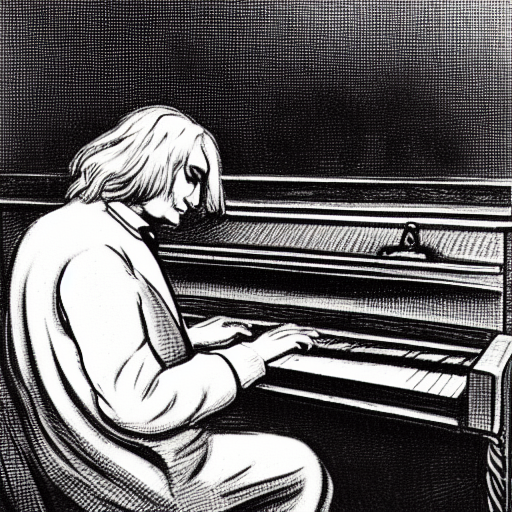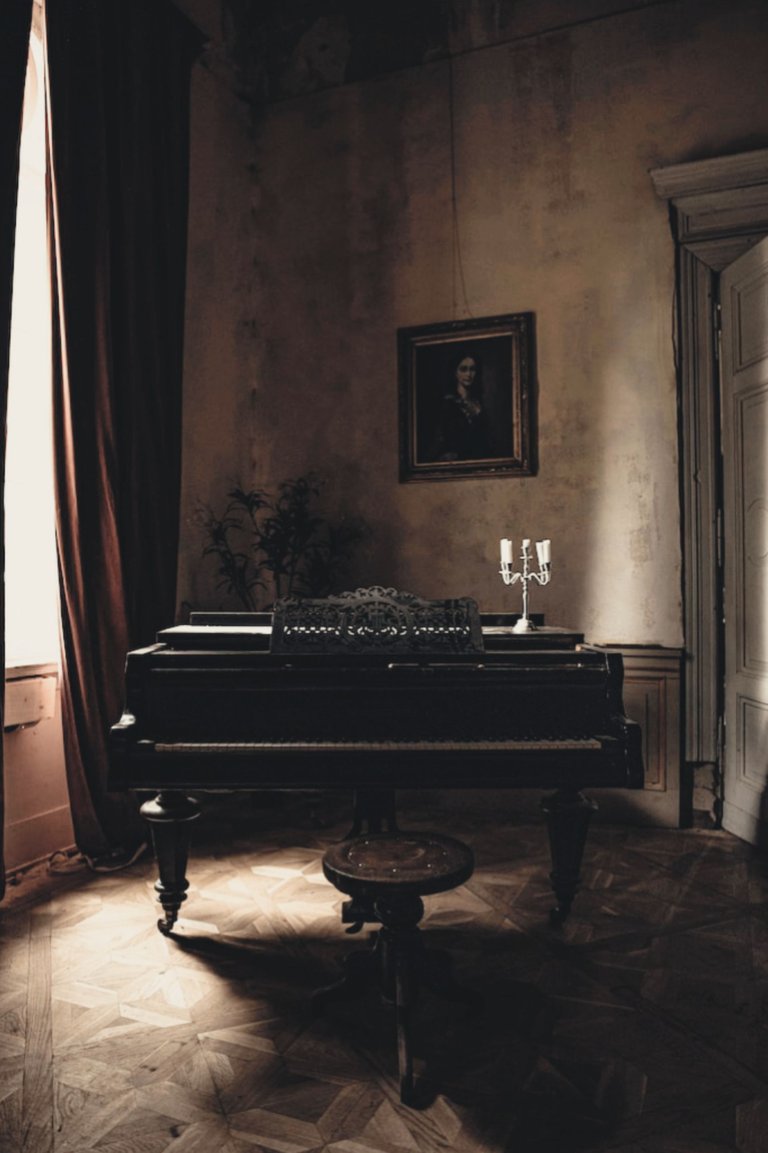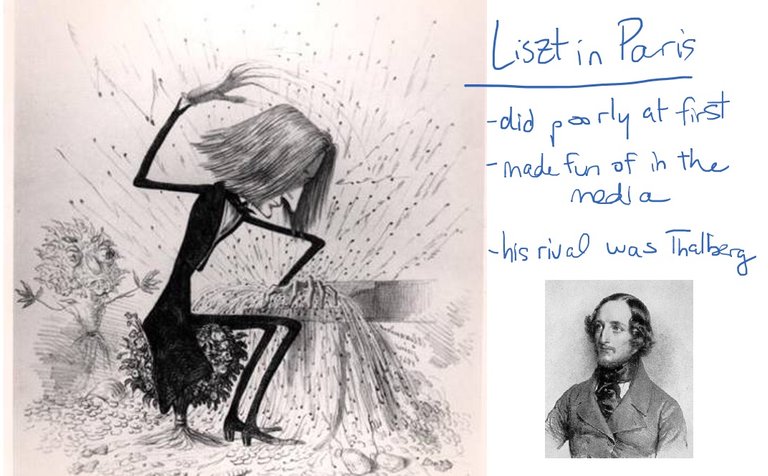Lessons and Inspirations from Franz Liszt (A.K.A the Devil's pianist) — also ft the Devil's violinist😈
Ahhh... Franz Liszt Ein persönlicher Favorit von mir :)
Esteemed virtuoso pianist, composer of extreme originality, writer, and enthusiast of all things "Grandeur!" Ah yes, what isn't to love about this man!
However, to further understand why his life and endeavors have been nothing short of inspiring, we must first take a deeper dive into the life of the Hungarian Composer.
...
Born October 22 1811 in Raidan, Hungary, pianist/composer Franz Liszt, was always one destined to venture into the path of the greatest musicians of all time.
By the young age of 6, Liszt was already recognized as a child prodigy; by 8 he was composing fairly elementary pieces, and ultimately at 9, he began performing concerts. Infact, one such of his concerts, gained the attention and remarks of the legend himself, Ludwig van Beethoven.
You see it all began when Carl Czerny, a former student of Beethoven, took Liszt with him to his old Master's house, in hopes of introducing the prodigy to the then 52 year old legend.

In his Letters, Liszt describes the moment he stepped into Beethoven's apartment like this: "Beethoven was working at a long, narrow table by the window. He looked gloomily at us for a time, said a few brief words to Czerny and remained silent when my kind teacher beckoned me to the piano".
The first of the pieces Liszt played was a piece by a close friend and student of Beethoven. Then after he was done, Beethoven requested he played one of Bach's fugues and so, the young boy chose the one in C minor from the Well Tempered Clavier. Apparently now, Beethoven had been somewhat intrigued by the talent of this little prodigy, that he sort to test his abilities even further.
And could you also transpose the Fugue at once into another key?".
Beethoven asked and to which Liszt endeavored to. "Fortunately, I was able to do so"." Liszt noted in his letter.
Now, what follows next is nothing short of remarkable: as Beethoven slowly approached where Liszt sat on the piano, a warm smile formed on his face which was something of rarity for the usually over tempered man; gently he placed his hands on Liszt's shoulders and exclaimed:
A devil of a fellow!
Of course, this meant the entire world to young Liszt whom admired Beethoven greatly.
May I play something of yours now?
Liszt implored to Beethoven and upon agreeing, the boy proceeded to play the first movement of the Piano Concerto in C major composed by the Maestro himself.
It goes without saying now, that Beethoven had been so impressed with Liszt's playing, that he actually grabbed him by the arms and gently placed a kiss upon his forehead. And that was the moment he said to him, those famous words that lingered in the heart of Liszt for many years to come:
"Go! You are one of the fortunate ones! For you will give joy and happiness to many other people! There is nothing better or finer!".
Fast forward to 1832, and this would be the exact year Liszt would come to know about the man, the legend, the devil's spawn himself, violinist - Niccolo Paganini!
At the time, Paganini was known across the country as a virtuoso of unfathomable magnitude. Infact, he was so good with that little fiddle of his, that speculations began arousing amongst the public and critics, that he had sold his soul to the devil in order to achieve such a hugh level of virtuosity. However, much like Liszt, Paganini's abilities were as a result of both talent and several painful hours of hard work.
Anyway, the story goes that when the 21 year old Liszt attended one of Paganini's charity concerts in Paris, he was so impressed by his virtuosity, showmanship, and charisma on stage, that he sort out to become exactly what Niccolo was to the violin, for the Piano! His commitment however, distracted him from his compositions for a short while, as he had to spend most of his time now vigorously training for the Piano instead. However, the result was well worth it as the many hours spent mastering the Piano, resulted in what's best described as a the birth of a Super Powered Pianist!

Illustration of an older Liszt playing the Piano
That's right, to his country and his generation alike, Liszt became a virtuoso who essentially — possessed piano superpowers!!!
No kidding, Liszt became a sensation. Anywhere he would go to perform, people would scream and cheer his name, women would often faint upon sighting him, many would even go as far as fighting just to get a piece of his handkerchiefs or velvet gloves; and interestingly enough, he was the one who started the trend of facing pianos sideways on stage when performing, just so people could gaze upon his mighty hands as he played.
Essentially, he was the first real life Rockstar!
Of course, all this sudden fame and fortune had not been without it's fair share of setbacks. For one, when Liszt first came to Paris, he was intially hated by the public and severely criticized by the media for his music and "over the top" style of playing. Even composers such as the likes of Chopin(whom later became a close friend of his) and Mendelssohn, intially remarked that he was, in their words:
A Zero
And that he had ignored his compositions for far too long.
Also, there had been numerous speculations regarding the composer's authenticity. One of the most popular being that, much like Paganini, Liszt had also sold his soul to the devil. Hence his nickname, the Devil's pianist.
But to be honest, who could blame those guys? I mean, just take a listen to the transcription he did of a much larger piece, the Grandes études de Paganini, by............. You guessed it! Paganini!!!
Here's the original version written for Violin and Piano:
And as if that wasn't already hard enough, here's the piano transcription by Liszt. It's nickname: La Campanella.
Ah yes... Liszt became quite the visionary serving both as a beacon of light and happiness to people, and a source of inspiration to other musicians. Yes, he was a visionary indeed.
And you know, even despite his rather grandeur and outspoken lifestyle and behavior, Liszt remained a kind, humble, honest, and generous person; of course, this shows in the many many donations and support he gave to several charities across Paris, his homeland - Hungary, his friends, and other musicians like himself.
And in the words of Liszt himself:
It is my fervent wish and my greatest ambition to leave a work with a few useful instructions for the pianists after me.
Ha! And even though several of those works range from pieces that are extreme to nearly impossible to play, they have nonetheless, evolved and shaped the music of the world till this very day!
Thank you Liszt. In many ways more than one :)
As always, there is a great deal of knowledge to learn here. Via the life of this composer, we learn:
- To be as Ambitious as the Devil :): Whether you wanna be a doctor, artist, writer, dancer or whatever; you should always aim to be the best of absolute best! Never settle for less. If you dream and work hard enough, you can truly become the greatest. Honestly, it doesn't take much to be achieve success... anyone can do it I believe. It really just begins with one step — a dream.
FYI: Just because it says be as ambitious as the devil, doesn't mean you should go sellinh your soul to Lucifer or anything like that. Lol 😂
Learn to rise above: Much like Liszt who didn't pay too much attention to the criticisms and speculations of the public and media, you must also learn to rise above. If you're true to yourself and know exactly what you're aiming at, not one single negative comment or criticism in this world can bring you down.
Find your inspiration: Whether it be from a Tv show you watched, a sports athlete you admire, or even the Devil's Violinist himself😈, always endeavor to have that source inspiration. If you can find an object of inspiration to attach yourself to, then that heavy sense of motivation will keep you going on the long run.
I mean can you imagine the amount of motivation and inspiration Liszt must've felt when Beethoven encouraged him like that??? Tell me, who's your Beethoven and how have they inspired you? :)
- Never give up: Sure this might be such a common advice, but it actually is the most important of a lessons here. Liszt, no matter how hard or perilous the journey was for him, never once stopped until he had finally achieved his goal of being the greatest virtuoso of all time.
You see, there's something I often like to tell myself anytime I feel like givinb up in my endeavors. Perhaps this might also be of some inspiration to you:
Now as you go about your day today, carry these sources of inspiration and enlightenment with you. And remember, much like Liszt, you can be great too. So great infact, that people will argue whether you have actually sold your soul to the devil.
Before I go, I'll leave you with a piece so dear to my heart, that was written by Liszt. I believe it's his most beautiful work.


I would agree with that impossible part :D
But indeed, Liszt and Paganini opened a new era. Hmm, maybe the devil has to do something with it? 😅
Indubitably... laughs in Hungarian Rhapsody*
They most certainly did regardless of whether or not the devil was involved hehe...